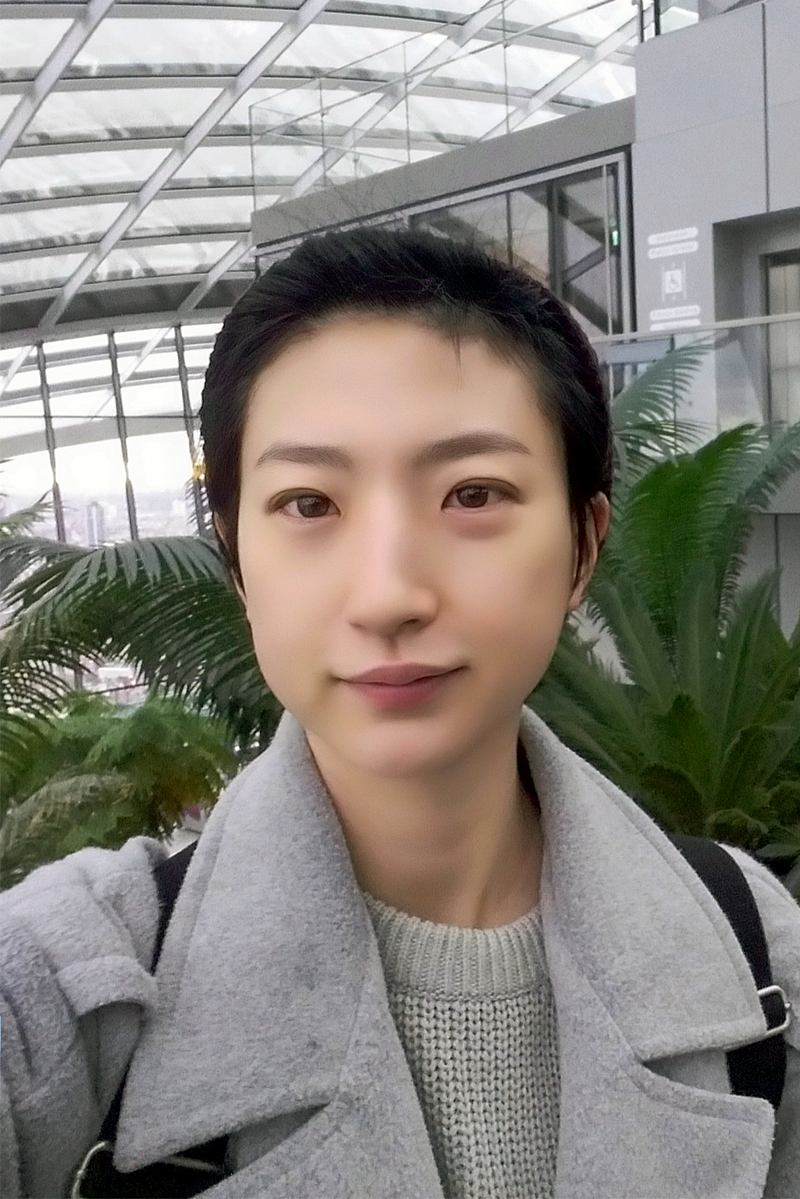Yeonwoo is a doctoral candidate from the Republic of Korea. She completed her Teaching of English to Speakers of Other Languages (TESOL) MA at IOE before embarking on a PhD in Applied Linguistics.
You were an MA student at IOE - what did you study and how was the experience?
Teaching of English to Speakers of Other Languages (TESOL) In-service MA - it was a best fit for me, as I was looking for a programme to enrich and deepen my knowledge of second language education and to promote my professional development. IOE is well equipped to provide support to international students, and you can expect help and support with every aspect of your studies from its brilliant staff members.
Studying at IOE was such a memorable experience in that I could gain invaluable cultural experiences. Particularly, studying in a multicultural city like London, where people from all over the world and different backgrounds bring the best of what they have always motivated me to become a better version of myself.
What motivated you to continue studying for a doctorate?
I felt much drawn to my previous and current supervisor, Professor Andrea Révész. Indeed, I was so impressed by her expertise in diverse second language acquisition areas, insightful guidance and endless support that I really wanted to continue working under her supervision.
I tried my hardest to produce a quality dissertation, which in the end was selected as the best MA dissertation written at IOE on English Language Teaching in 2015/16, and therefore was nominated for the British Council Master's Dissertation Award in English Language Teaching (ELT). I was extremely pleased to learn that my dissertation was ranked second among all ELT dissertations submitted in this scheme in the UK in 2016. I could not have imagined accomplishing such an academic achievement without coming to IOE.
What is your PhD thesis about?
My thesis examines whether using written or spoken corrective feedback influences the extent to which second language learners develop their grammatical skills in the context of video-conferencing. Due to the unique characteristics of video-conferencing facilities (e.g., Zoom), feedback can be presented to learners in single or multiple modalities. For example, learners may receive feedback orally, in writing through a chat window, or in both modes simultaneously.
“My thesis investigates which of these options is most helpful in second language development. My preliminary findings suggest that a combination of oral and written feedback works best.
Another goal of the study is to explore the extent to which individual differences in working memory mediate the impact of various types of digital recasts on attentional allocation and second language development. To examine the learners’ attentional allocation to the feedback, their eye movements will be recorded while performing the treatment tasks.
Given that new communication technologies are blurring the distinction between traditional and distant teaching and learners are frequently engaged in synchronous computer-mediated communication (SCMC) instructional settings, an examination of the potential of multimodal provision of feedback in video-conferencing tasks can shed light on how to exploit such materials most effectively to stimulate second language learning.
What inspires you about your field of study?
My supervisors, other PhD students in my programme and scholars who are willing to help me and offer valuable comments on my research always inspire me and bring out the best in me. The COVID-19 pandemic, which has created the largest disruption of education systems in history, also prompts me to research and assess a wide range of online educational resources to support the continuity of language teaching and learning.
“My topic is a highly important and timely potential contribution, given that during COVID times, many students were forced to study languages online. I am trying to help L2 learners and thereby make the world a better place.
What are your next career plans?
My future goal is to pursue a career in academia as a lecturer and researcher. Also, I am taking the UCL Arena for Postgraduate Teaching Assistants (PGTA) programme, which is a developmental pathway for PGTAs who teach at UCL, leading to the submission of an application to become an associate fellow of the Higher Education Academy.
I found this programme very helpful in that it offers opportunities to experience and discuss a wide range of teaching, learning and assessment processes with colleagues from different disciplines and to plan practical approaches to facilitating students’ learning.
Has there been an element of the doctoral programme you've found particularly valuable?
Sure! First, I truly appreciate the academic rigour and research excellence that I encountered while working with my supervisors, Professor Andrea Révész and Dr Ana Pellicer-Sánchez. They have enabled me to acquire critical thinking and analytical skills about current language education practices and pedagogy.
Also, my doctoral programme has offered valuable opportunities to work with the world’s most respected and frequently cited scholars I would not have been able to meet if I had not studied in my programme. This allowed me to contribute to research projects, which was invaluable in gaining practical research experience.
Studying my doctorate at IOE has opened the door to a wide range of prestigious international conferences. Since I started my PhD journey, I have presented my research at various internationally renowned conferences. For example, I gave a presentation at the 2021 American Association for Applied Linguistics (AAAL) Conference, which has a reputation as a comprehensive and stimulating conference in applied linguistics. Participating at such an internationally recognised conference was a wonderful opportunity to access and learn a wide range of research methodologies and current trends in my area. More importantly, it served as an ideal academic arena for me, where I was able to listen to world-class researchers’ opinions and have a deep discussion with them about my own research.
It was helpful in terms of offering plentiful opportunities for networking as well. Since 2020, I have also presented at the London Second Language Acquisition Research Forum (L-SLARF) held by an internationally recognised second language acquisition (SLA) research group, which allows me to learn from the most prominent SLA scholars. Their comments on my own study have tremendously contributed to improving my research design and approach. A series of SLA doctoral seminars they provide have also been invaluable in that it helps me to practice presentation skills I need for academic conferences.
You applied for a grant from TIRF (The International Research Foundation for English Language Education).
What made you decide to apply, what difficulties did you encounter and how did you overcome them?
My supervisors have constantly provided us with the latest information on grants available for doctoral students. The TIRF award was one of them. I also won the Language Learning Dissertation Grant from the journal Language Learning.
Preparing an application was quite time-consuming and challenging. It was not easy to provide a well-balanced overview of each section such as the background, rationale, research design and supporting evidence within a required word limit. I searched for and referred to similar forms of sample applications and used preliminary data of my pilot study and scoping research to strengthen and support my research questions.
Is there anything else you would like to mention?
I am truly impressed by the immense academic and professional support from my supervisors, my programme, other academics and faculty members. If you want to experience the world number one university for Education and learn from world-class academics, then UCL IOE is the answer.
Last updated 29 March 2023.
 Close
Close



